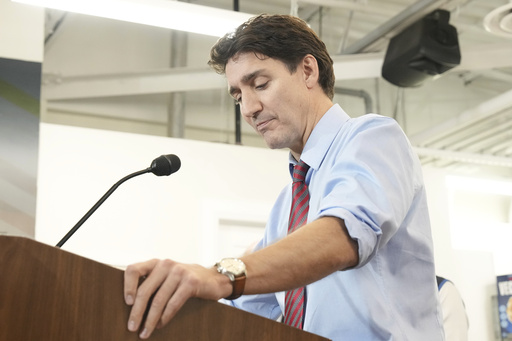HALIFAX, Nova Scotia — On Thursday, the government of Prime Minister Justin Trudeau unveiled a new initiative aimed at easing financial pressures on Canadians facing a rise in living costs, all while preparing for a potential federal election. The government plans to suspend the federal sales tax on various everyday items and distribute financial aid to many individuals across the country.
As the country grapples with a cost of living crisis, public dissatisfaction with Trudeau’s leadership has been evident, particularly as an election could be called anytime between now and October of next year. During a press event in Toronto, Trudeau remarked, “While we can’t dictate prices at the checkout, we can provide additional financial support to help people cope.”
The proposed plan targets Canadians who earned up to 150,000 Canadian dollars (approximately US$107,440) in 2023. They will be eligible for a one-time payment of 250 Canadian dollars, reflecting the government’s acknowledgment that even higher earners have faced substantial challenges.
Around 18.7 million Canadians are expected to benefit from this financial assistance. The federal goods and services tax exemption is set to take effect on December 14, lasting until February 15. The government has specified that this tax relief will encompass a range of products, including children’s apparel and footwear, toys, diapers, dining out, alcoholic beverages, as well as holiday-related purchases like Christmas trees and various snacks.
Trudeau has confirmed his intent to lead his Liberal Party in the upcoming electoral campaign. Historically, no Prime Minister of Canada has secured four consecutive terms in over a century. The Liberal government currently navigates a minority position, requiring cooperation from at least one significant party within the Parliament to advance its agenda.
Since Trudeau took office in 2015, he sought to rejuvenate Canada’s liberal values after nearly a decade of Conservative governance, often likening his leadership to that of his father, the late Prime Minister Pierre Trudeau. However, with rising concerns over the cost of living in the aftermath of the COVID-19 crisis, Trudeau faces heightened scrutiny.
In the latest Nanos poll, which surveyed 1,047 individuals, the Liberals lag behind the opposition Conservatives with a support rate of 26%, compared to the Conservatives’ 39%. This poll carries a margin of error of plus or minus 3.1 percentage points, underscoring the challenges the Liberal Party faces in sustaining public confidence as the election approaches.


